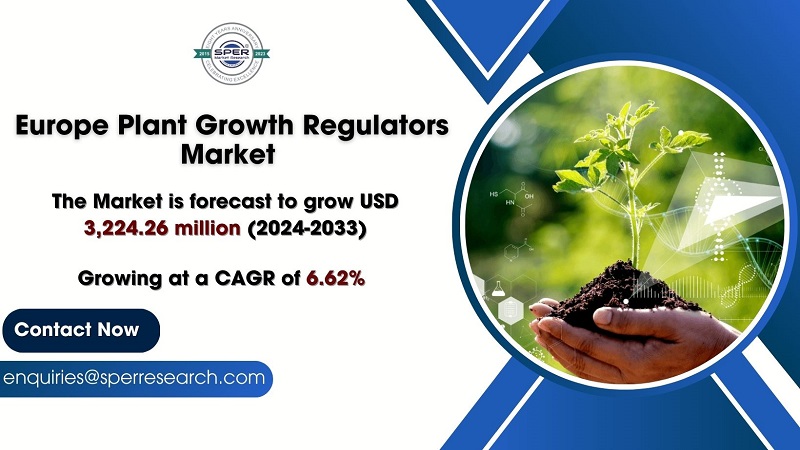Pressure washing is a powerful and effective way to clean surfaces, from residential driveways to large commercial spaces. However, to achieve the best results, having the right pressure washing equipment is key. Not only does it impact the efficiency of the task, but it also enhances safety and prolongs the lifespan of your pressure washer. Here, we’ll guide you through essential pressure washing tools and accessories, covering everything from personal protective equipment (PPE) to high-quality hoses and nozzles.
This article dives into everything you need to know about pressure washing equipment to ensure you’re prepared for any cleaning job. With insights from industry leaders like Everything Pressure Washing, we’ll help you build a setup that delivers both power and precision.
Why the Right Pressure Washing Equipment Matters
When it comes to pressure washing, using the right tools directly impacts your cleaning results. The correct equipment will help you remove tough grime, mould, and stains efficiently while also ensuring that surfaces are not damaged. Additionally, pressure washing can be hazardous if you’re not adequately equipped, making safety gear a vital part of your toolkit.
High-Quality Pressure Washer
At the core of every setup is the pressure washer itself. These powerful machines come in various sizes and pressure ratings, suitable for everything from light home cleaning to heavy-duty commercial tasks. When selecting a pressure washer, consider the following:
- Power Source: Electric washers are quieter and more suited for small jobs, while gas-powered washers provide more power for demanding tasks.
- PSI (Pounds per Square Inch): Higher PSI levels offer more cleaning power, with ratings from 1,200 for light tasks up to 4,000 PSI or more for heavy-duty work.
- GPM (Gallons per Minute): Higher GPM ratings mean more water flow, which can speed up the cleaning process for large areas.
Pressure Washer Nozzles and Tips
Pressure washer nozzles control the spray pattern, which can range from a concentrated jet to a wider spray. These nozzles are usually color-coded for easy identification:
- Red (0 degrees): Creates a powerful, narrow stream that can damage delicate surfaces if not used carefully.
- Yellow (15 degrees): Suitable for heavy-duty cleaning on hard surfaces like concrete.
- Green (25 degrees): Great for general-purpose cleaning on surfaces like decks and patios.
- White (40 degrees): Ideal for gentle washing on delicate surfaces such as cars and windows.
- Black (Soap nozzle): This is used to apply detergent at low pressure and is perfect for pre-treating surfaces.
Selecting the correct nozzle ensures you’re not only cleaning effectively but also protecting the surface from damage.
Surface Cleaners
Surface cleaners are essential for achieving even and streak-free cleaning on flat surfaces. These attachments are typically round with rotating jets, helping you clean large areas, such as driveways and sidewalks, in a fraction of the time. Surface cleaners reduce splash-back, keeping you cleaner and saving water while delivering a professional finish.
Extension Wands and Telescoping Poles
Extension wands are incredibly useful when dealing with hard-to-reach areas like upper stories, gutters, and roofs. Telescoping poles extend the reach of your pressure washer, allowing you to work safely from the ground without the need for ladders. Make sure the extension wand is compatible with your pressure washer’s PSI to ensure optimal performance.
Hose Extensions and High-Pressure Hoses
A high-quality, durable pressure washer hose is a must. Look for hoses that are kink-resistant and rated for high PSI to handle commercial-grade machines. Investing in a hose extension gives you the flexibility to work further from the machine, which can be helpful when working on large properties or commercial sites.
Personal Protective Equipment (PPE)
Safety should always be a top priority in any pressure washing task. Using personal protective equipment (PPE) not only protects you from accidental sprays but also reduces the risk of injury from flying debris. Essential PPE for pressure washing includes:
- Safety Glasses: Protects your eyes from water splashes, debris, and chemical sprays.
- Gloves: Heavy-duty gloves shield your hands from harsh detergents and high-pressure water.
- Steel-Toe Boots: Provide stability and protect your feet from impact, especially on uneven surfaces.
- Waterproof Clothing or Aprons: Keeps you dry during cleaning tasks and shields you from chemical splashes.
- Ear Protection: Gas-powered washers can be loud, making ear protection a wise choice for extended use.
Detergent and Chemical Injectors
Using detergents can enhance your cleaning results by breaking down dirt and grime faster than water alone. Many pressure washers come with built-in detergent tanks, but you can also find chemical injectors as separate attachments. Be sure to use detergents formulated specifically for pressure washers to avoid damaging the equipment.
Foam Cannons and Soap Dispensers
Foam cannons are a great addition for achieving a thick, soapy lather on surfaces before pressure washing. This accessory allows you to apply a foamy layer that clings to dirt, making it easier to rinse away. Foam cannons are especially popular in automotive detailing but can also be used for decks, siding, and more.
Turbo Nozzles
Turbo nozzles are speciality nozzles that spin the water stream, providing the intensity of a zero-degree nozzle with a wider coverage area. They are excellent for removing tough stains on concrete, brick, and metal surfaces, but be cautious when using them on delicate materials, as they can cause damage.
Gutter Cleaning Attachments
For homeowners and commercial cleaners alike, gutter cleaning attachments can make maintaining gutters significantly easier and safer. These attachments connect to your pressure washer and allow you to blast out debris from the ground without climbing ladders. Look for attachments with a curved shape to help direct the water flow into the gutter effectively.
Selecting the Right Accessories for Your Needs
When choosing pressure washing accessories, consider the specific tasks you’ll be tackling. While high-pressure hoses and durable nozzles are universally useful, speciality items like foam cannons and gutter attachments are task-specific. Think about the surfaces, materials, and conditions you’ll encounter, and equip yourself with versatile and compatible tools.
Maintaining Your Pressure Washing Equipment
Proper maintenance of your pressure washing equipment will extend its life and ensure consistent performance. Some general maintenance tips include:
- Check Connections: Inspect hoses, nozzles, and attachments for leaks or damage before each use.
- Flush Out Detergents: Run clean water through the pressure washer after using any detergent to prevent build-up and clogs.
- Store Properly: Store your pressure washer and accessories in a dry, safe area, especially during colder months, to avoid freezing or rust.
- Replace Worn Parts: Over time, parts like hoses, O-rings, and nozzles can wear out. Regularly check and replace these components as needed.
Everything Pressure Washing: A Reliable Source for Equipment
Finding quality equipment and accessories is essential, and companies like Everything Pressure Washing offer a wide selection of tools tailored to both beginners and seasoned pros. Their curated range of products ensures durability and performance, helping you complete any task efficiently.
Tips for Safe and Effective Pressure Washing
Pressure washing can be highly rewarding when done correctly, but it requires proper technique to avoid damage or injury. Here are some tips to keep in mind:
- Start at a Distance: Begin washing at a safe distance from the surface to gauge the pressure, then move closer as needed.
- Use the Correct Nozzle: Selecting the right nozzle for the job is crucial. Start with a wider spray pattern and move to a narrow one only if necessary.
- Avoid Electrical Hazards: Be cautious when pressure washing near electrical outlets, lights, or cords.
- Maintain Consistent Movement: Avoid keeping the spray in one spot too long, as this can damage surfaces.
Conclusion
Pressure washing is an invaluable method for maintaining clean and visually appealing surfaces. Whether you’re a homeowner or a professional cleaner, having the right pressure washing equipment is essential for achieving safe, efficient, and impressive results. From high-quality hoses and nozzles to safety gear and surface cleaners, equipping yourself with the proper tools makes a world of difference.
With guidance from industry providers like Everything Pressure Washing, you can find the necessary tools and accessories to tackle any job confidently. As you refine your pressure washing setup, remember that a well-maintained and comprehensive collection of equipment will save you time, protect surfaces, and deliver outstanding cleaning power every time.
FAQs
How often should I replace pressure washer nozzles?
Nozzles should be replaced annually if used frequently or sooner if you notice wear that affects the spray pattern.
Can I use regular household soap in my pressure washer?
It’s best to use detergents specifically formulated for pressure washers to avoid damage to the pump and hoses.
What PSI is recommended for cleaning concrete?
A PSI of 3,000 or higher is ideal for tough concrete surfaces.
Why is my pressure washer losing pressure?
Low pressure can result from clogged nozzles, air leaks in the hose, or a worn pump. Regular maintenance can help prevent these issues.
Is pressure washing safe for wood surfaces?
Yes, but use a low PSI (500-1,200) and a wide nozzle to avoid damaging the wood.
What’s the advantage of using a foam cannon?
Foam cannons create a thick lather, which helps break down dirt and grime before rinsing, making it easier to clean heavily soiled surfaces.




